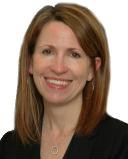Memory
Older Age and the 2020 Presidential Election
Why older adults are viable leaders.
Posted March 15, 2020 Reviewed by Lybi Ma
The democrat’s nominee for President of the United States will be his eight decades of life. In fact, the next President will be in his 70s, no matter which party prevails.
I study aging and I find it, on the one hand, curious that we have arrived at this juncture. Western societies hold negative views about older adults. Facebook content reflects negative age stereotypes. We fear wrinkles and looking old. We regard older adults as lonely, sad, and grumpy, and even older adults hold these negative ideas.
Indeed, Biden, Sanders, and Trump embody some negative ideas about aging. Biden is prone to “senior moments.” Sanders could be a character in the 1993 film, Grumpy Old Men, both because he is a curmudgeon and he has comedic chops. And Trump is prone to negativity and offensive insults.
Fortunately, and contrary to some of the behaviors of these men, many negative ideas about aging are incorrect.
Scientific data provides some reassurance that, at least from an aging perspective, your voting choices are sound. Older adults have more experience and knowledge than younger persons. Crystallized cognitive skills, such as vocabulary and factual knowledge, increase with age. Sanders claims that “in a crazy world like today,” experience is “very important.”. The electorate appears to agree.
And notions like “senior moments” are half-truths at best. Memory does not really get worse with age but some memory-like things are harder. For example, whereas older adults learn new information at a slower rate than younger persons, once something is learned, older adults remember it just as well as younger persons.
Another somewhat perplexing phenomenon is than older adults are less efficient than younger persons at retrieving information from memory. But this difficulty isn’t exactly a memory problem. The information is there, in the filing system of our brains, it just isn’t as easy to access the right file at the precise time one would like.
For example, have you ever walked into a room to get something and forget why you are there? We call these “senior moments” and assume we have memory problems. But you have not really forgotten why you entered the room. You needed scissors to open a box. And you remember as soon as you step out of the room and see the box, waiting to be opened. These inefficiencies are annoying but no evidence of a memory problem.
If we elect an octogenarian to the White House, it will be the second time in a row.
It remains to be seen if we are on a path towards electing more older adults to the Presidency of the United States. In my line of work, an older adult is a person aged 65 or older. By this metric, there are three other U.S. Presidents who were elected in older adulthood and they are James Buchanan in 1856 (age 65), William Henry Harrison in 1840 (age 67), and Ronald Reagan in 1980 (age 69). By all accounts, electing an older adult for President does not appear to be a trend.
Thus, we should take advantage of this unique moment in history to learn what we can about older adults. They are in the national conversation like never before.
The science of aging is thriving. We can learn from these data how and why older adults are a largely untapped resource in our society and correct many negative misperceptions and half-truths.


